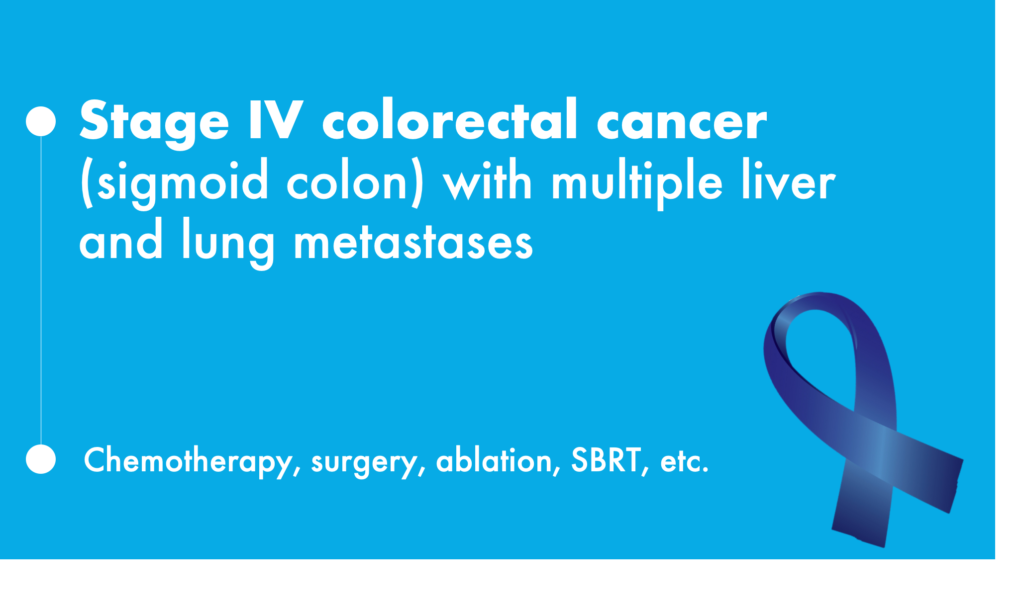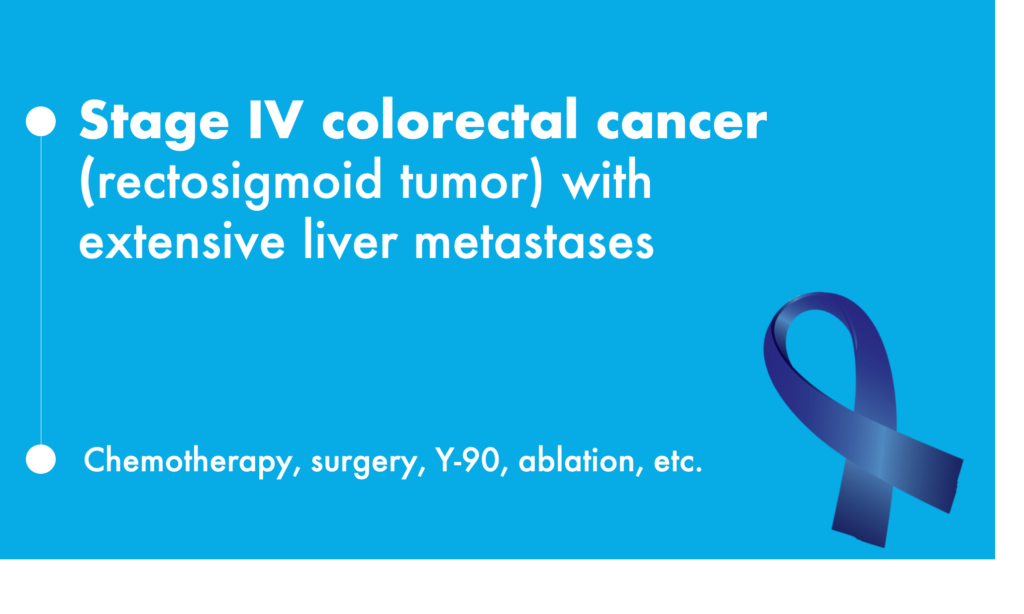Journey of Resilience
How a 62-Year-Old Woman with Lynch Syndrome Overcame Advanced Rectal and Urothelial Cancer
A Complex Diagnosis and a Powerful Comeback
At age 62, a woman with a known family history of Lynch syndrome began experiencing unintentional weight loss, abdominal pain, and rectal bleeding. A CT scan revealed a rectal mass and a lesion affecting her left ureter. An MRI confirmed a large 10 cm rectal tumor with lymph node involvement and threatened mesorectal fascia — a sign of advanced rectal cancer, staged as T3cN2M0.
Biopsy results showed rectal adenocarcinoma with loss of MLH1 and PMS2, consistent with Lynch syndrome. Despite efforts to identify the ureteral lesion through biopsy, initial tests were inconclusive.
The patient began six cycles of neoadjuvant chemotherapy (capecitabine and oxaliplatin), followed by five weeks of radiation therapy with capecitabine. MRI afterward showed some tumor shrinkage, but concerning features remained. She underwent three more cycles of chemotherapy before a major surgery: abdominoperineal resection and partial removal of her left kidney and ureter, as the kidney had become nonfunctional.
Post-surgical pathology confirmed mucinous rectal adenocarcinoma with lymph node involvement and high-grade upper tract urothelial carcinoma (UTUC) with positive margins.
Given the high tumor burden and microsatellite instability (MSI-H), her medical team recommended adjuvant immunotherapy. She received four cycles of nivolumab and ipilimumab, followed by ten maintenance cycles of nivolumab. Although treatment was later discontinued due to side effects, follow-up scans and tests have shown no signs of cancer for nearly 21 months.
This case highlights the power of personalized treatment and early genetic testing in managing complex cancer cases.
Diagnosis
Advanced rectal adenocarcinoma and upper tract urothelial carcinoma, both linked to Lynch syndrome
Biomarker profile: MSI-H
Treatment
Neoadjuvant chemotherapy, radiation, major surgery, and adjuvant immunotherapy (nivolumab + ipilimumab)
Outcome
No evidence of disease for 21 months post-treatment, with excellent response to immunotherapy
Source: Hsieh-Wong, J., Liu, J., Huynh, J., Parikh, M., Kim, E., Gong, J., … & Cho, M. (2022). Immunotherapy in synchronous MSI-H rectal adenocarcinoma and upper tract urothelial carcinoma: a case report. Journal of Gastrointestinal Oncology, 13(3), 1473.
.


